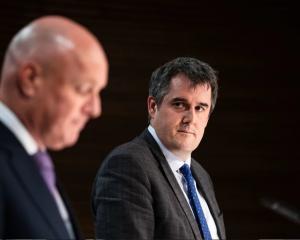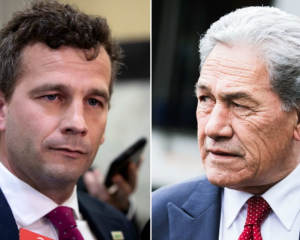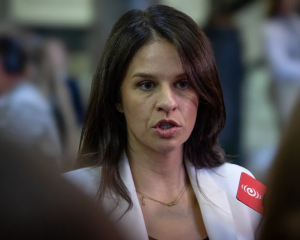The report by the Child Commissioner suggests that poverty in New Zealand is much worse now than it was in the 1980s.
The annual Child Poverty Monitor says the number of children living in households earning less than 60% of the median household income after housing costs has almost doubled from 15% of all children in 1984 to 29% last year.
Children hospitalised with poverty-related illnesses more than doubled in the 1990s and have increased further in the recent recession.
In an interview with Newstalk ZB's Leighton Smith this morning, Mr Key said a range of factors contributed to poverty but he singled out drug abuse as a concern.
He said drug dependency locked people out of the labour market and kept them in poverty.
"The long and short of it is we need to continue to do more, to do the fundamental reforms and try and help those families into work."
Despite the criticisms in the Child Poverty Monitor, he said the Government did a lot to alleviate hardship in New Zealand.
He remained adamant progress was being made. Billions were being spent on working for families, accommodation supplements, breakfast and social workers in school.
Breaking the cycle of poverty, not more money, was the solution, he said.
Labour MP Jacinda Ardern labelled the Prime Minister's comments as "completely irresponsible".
"He offers no evidence in support and is demonising tens of thousands of families who are living in poverty."
She said at a time when the Children's Commissioner came out with a campaign focusing on real issues, Mr Key had tried to undermine it.
Outgoing Children's Commissioner Dr Russell Wills yesterday called on New Zealanders to challenge the Government's policy on poverty.
"Everything points to things being far tougher than they were 30 years ago. That's not right in a country like ours and it's not fair," said Dr Wills, whose five-year term as Children's Commissioner ends in June. "Today I'm asking New Zealanders to show they share our concern by spreading the message #itsnotchoice."
Political scientist Dr Bryce Edwards said Dr Wills' message was "a beautiful contrast" with the Prime Minister's claim in 2011 that "anyone on a benefit actually has a lifestyle choice".
He said it was unusual for a public official to lead a social media campaign on such a contentious issue.
"It's not normally the case that you have a government agency that is attempting to mobilise citizens on a political issue, especially one that isn't necessarily in tune with the Government of the day."
But Dr Wills said the message was not aimed at Mr Key's comments.
"It has a double meaning," he said. "It's not 'choice', meaning it's not a good thing. It's also not the children's choice."
The social media campaign asks people to print and complete a sign saying, "Child poverty has doubled since the 80s. This is ..."
The Child Poverty Monitor is produced jointly by Dr Wills' office and Otago University and is funded by the J R McKenzie Trust.
Otago epidemiologist Dr Jean Simpson said the increase in children hospitalised with poverty-related illnesses since 2007 was driven by more respiratory and viral infections associated with cold, damp and overcrowded houses. Housing costs have risen, and more are renting.
However the number of children living in material hardship jumped from 14% in 2007 to 21% in 2011 but has dropped back to 14%.
Social Development Minister Anne Tolley said benefits would rise in April by $25 a week for every family with children and in-work tax credits for working families would rise by up to $12.50 a week. Labour MP Jacinda Ardern said the increases were not enough.
Labour promised last year to pay an extra $60 a week for most children up to age 3.












